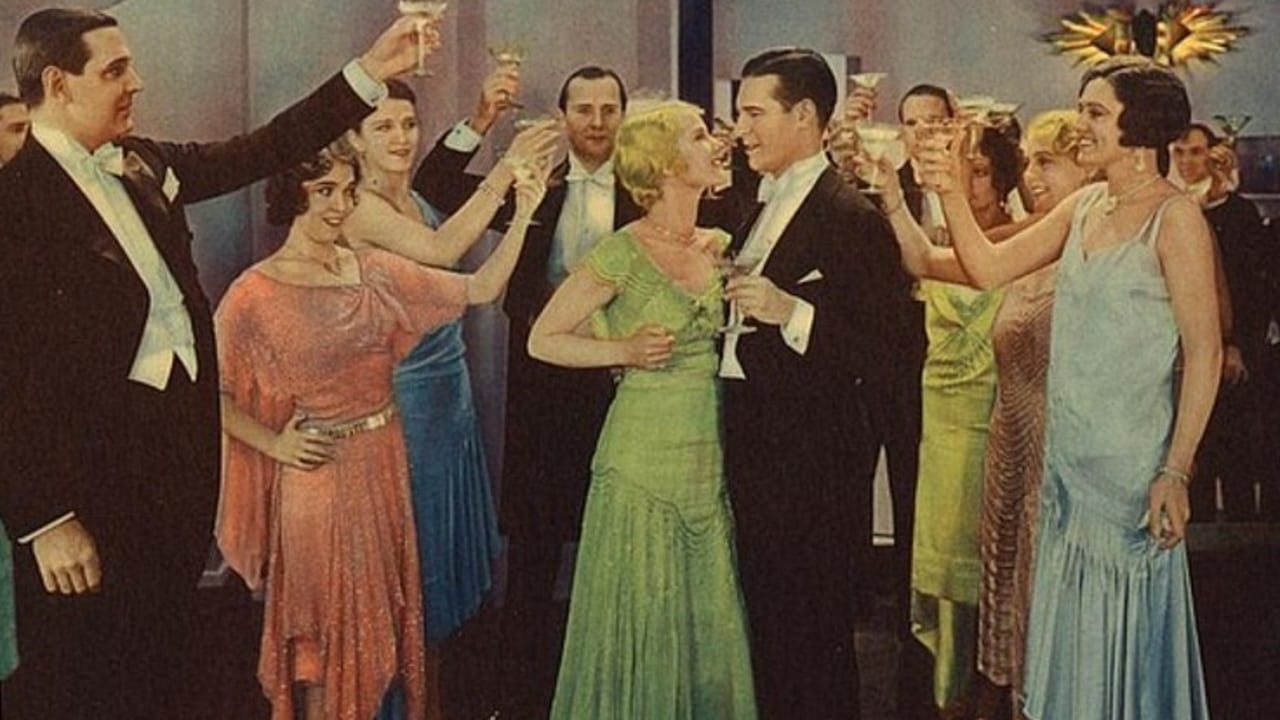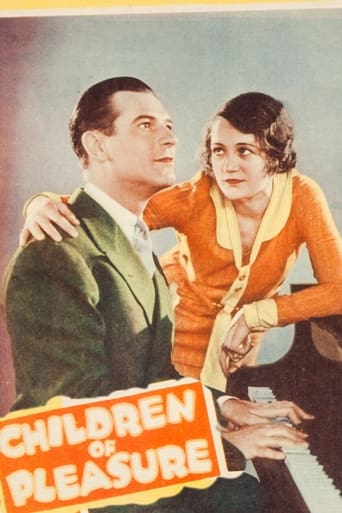

It’s fine. It's literally the definition of a fine movie. You’ve seen it before, you know every beat and outcome before the characters even do. Only question is how much escapism you’re looking for.
... View MoreThe tone of this movie is interesting -- the stakes are both dramatic and high, but it's balanced with a lot of fun, tongue and cheek dialogue.
... View MoreThere are moments that feel comical, some horrific, and some downright inspiring but the tonal shifts hardly matter as the end results come to a film that's perfect for this time.
... View MoreThe film never slows down or bores, plunging from one harrowing sequence to the next.
... View MoreI guess making sure that lead Lawrence Gray had his origins in the Bronx instead of Manhattan's Lower East Side was MGM's way of making sure Irving Berlin did not sue them. He was a most litigious man you know.Gray is a Broadway composer of note who aspires to marry into high soceity. The object of his affection is Judith Wood, but he can't see for beans his assistant Wynne Gibson for once playing a good girl in a movie. I will say the usual ending is not what you will see.Gray was a singer who had a pleasant voice you will discover, but had no real screen presence. He appeared in a few early musicals, but his career ran out of gas. Wood has some real bite in her performance as the spoiled self indulgent society woman.Some nice production numbers of some forgettable songs are in Children Of Pleasure. A pre-Code production of limited appeal.
... View MoreIf you want to excuse the mediocrity of "Children of Pleasure," you can point out that it was made in 1930 when movies were just learning to talk. On the other hand, over at Warner Bros., they were revving up the style and sparkle of "42nd Street" and the first "Gold Diggers" (both released in 1933.)Aside from its clumsy title, "Children of Pleasure" has unimaginative production numbers (Busby Berkeley would cringe,) a leading man, Lawrence Gray, with no charisma, embarrassing ethnic humor and a creaky plot about a songwriter who falls for a phony society dame but doesn't realize that even at their wedding rehearsal, she's thinking of divorce. Meanwhile, the secretary who truly loves him is prepared to hurl him at his heartless sweetheart. Talk about noble sacrifice! As a museum piece, it's worth watching. As entertainment, it's pretty grim.
... View MorePrevious reviewers have hit the high spots in summarizing this 1930s musical from MGM. Lots of criticism has been thrown at the perceived inadequacies of the music and dance aspects of the movie. Yes, when looking at it through today's eyes, it looks dated, simplistic, and fairly unpolished. But the higher standards of the coming years hadn't arrived yet, so let's give this a break! Indeed the dance numbers could have been better rehearsed. If one looks closely, the footwork in the production numbers, while lacking Astaire/Rogers-like precision, is still pretty close. Where the real problems come are in the areas of arm, hand, head, and other body motions. It looks like those aspects of performance were never discussed with the cast, so the resulting dances look sloppy. But this was a step in the process of giving us the higher-level musical that some of us love so very much! Watch this film when you get the chance and enjoy this chapter in the development of an All-American art form!
... View MoreIf you are possibly going to spend 75 minutes or so out of your life watching an early musical from MGM, there's a strong chance you already know what you're in for--this short quickie, compared to a creation from Busby Berkeley at Warner's a few years later, is primitive indeed, but captures a time and place in Hollywood like few other films are able to do.The plot is simple--winsome secretary loves a songwriter who falls for a society dame. The songwriter is zippy Lawrence Gray who smiles through his tears, and composes a song when he wants to express himself in love or out of it. One of his interpreters (and comic relief) is a Sophie Tucker type, a sort of Red Hot Mama attached to her ethnic pianist (at least that's how's he's played). We get some peeks at various musical numbers, some out-of-step minstrels in a theatre and a nutty song and dance in a nightclub--and "you ain't seen nothing" until you've seen the production number for "Dust," one of the hero's hits--with several helpings of actual dust--and later, a catchy little number "The Whole Darned Things For You."The pleasures in this film are to be found in the sense of history it represents, awkward dealings with the sound, none of it prerecorded--even an outdoor encounter with comedian Jack Benny is fascinating, and one wonders if the subway entrance was a location shot or on the MGM lot. "Jiminy Cricket" Cliff Edwards also makes a jokey cameo, and the film zips along at a good pace--but ending as if the producer decided the company had run out of resources and just called "cut" and "print." Children of Pleasure is an archivist's delight!
... View More